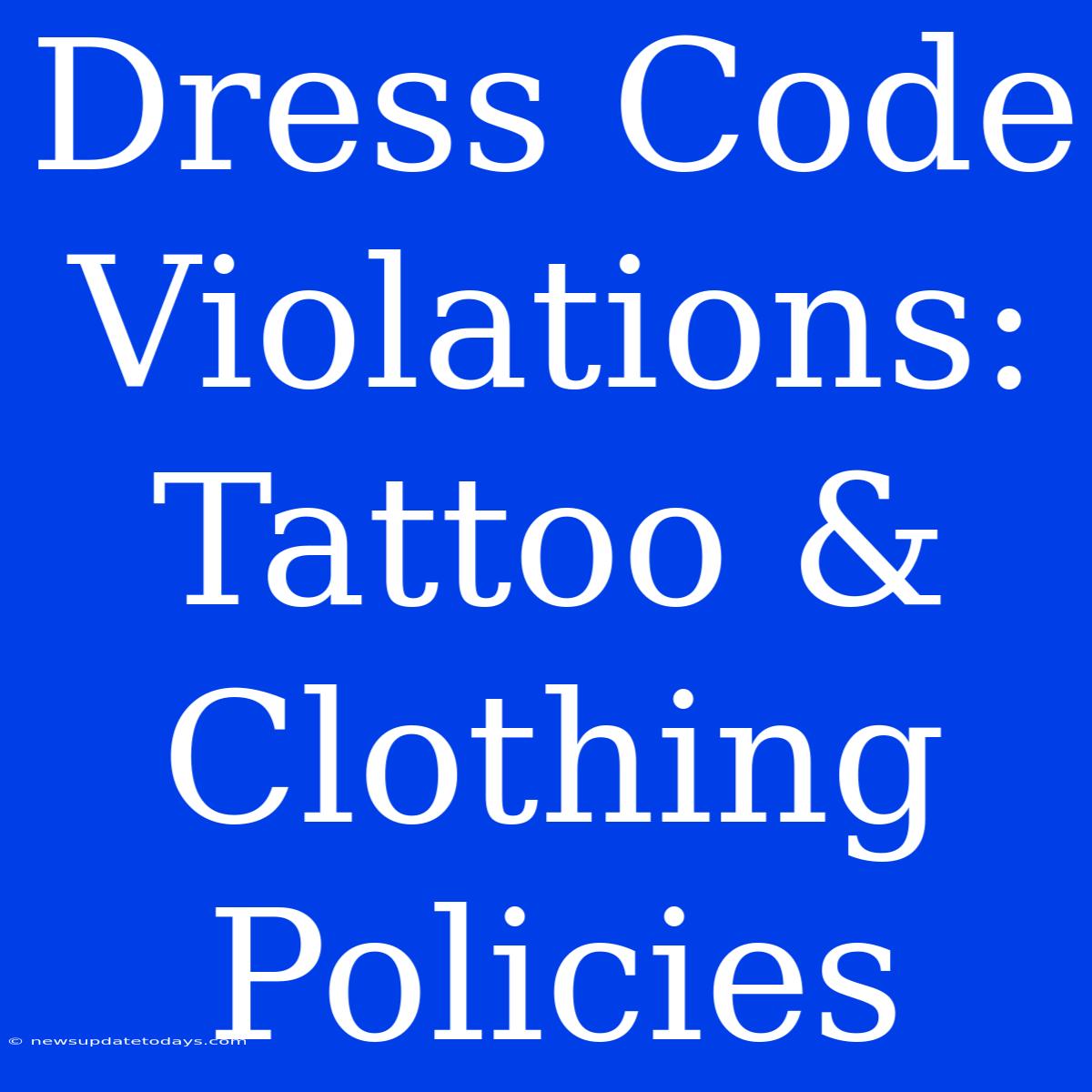Dress Code Violations: Navigating Tattoo & Clothing Policies in the Workplace
Navigating workplace dress codes can be tricky, especially when it comes to personal expressions like tattoos and clothing choices. This article explores the complexities of tattoo and clothing policies, offering insights for both employers and employees.
The Fine Line Between Self-Expression and Professionalism
The workplace often requires a balance between individual expression and maintaining a professional image. While tattoos and unique clothing styles are increasingly common, not all workplaces embrace them equally. This can lead to misunderstandings and even disciplinary actions if dress code policies aren't clearly defined or fairly enforced.
For Employers:
- Clear and Concise Policies: The most effective approach is a well-defined, written dress code policy that addresses tattoos and clothing explicitly. Avoid vague language; be specific about acceptable and unacceptable attire. Consider providing examples.
- Consistency is Key: Fair and consistent enforcement is crucial. Applying the dress code unevenly can lead to legal issues and damage morale.
- Accommodation and Reasonable Modifications: Where possible, consider reasonable accommodations for employees with religious or cultural reasons for specific clothing or visible tattoos. Consult legal counsel to ensure compliance with anti-discrimination laws.
- The "Business Casual" Conundrum: Defining "business casual" can be particularly challenging. Provide clear guidelines on acceptable levels of formality, addressing issues like visible tattoos, piercings, and clothing styles.
- Consider the Industry: The appropriate dress code varies widely across industries. A tech startup might have a more relaxed dress code than a financial institution.
- Regular Review and Updates: Dress code policies should be reviewed and updated regularly to reflect changes in societal norms and legal requirements.
For Employees:
- Understanding the Policy: Carefully read and understand your employer's dress code policy. If you have questions, ask for clarification.
- Professionalism First: While self-expression is important, prioritize professionalism in the workplace. Consider the impact your attire might have on clients or colleagues.
- Proactive Communication: If you have concerns about the dress code, communicate them respectfully to your supervisor or HR department. Suggest alternative solutions if possible.
- Knowing Your Rights: Familiarize yourself with your legal rights regarding discrimination based on appearance. Consult with an employment lawyer if you believe your rights have been violated.
- Consider the Context: The appropriateness of visible tattoos and clothing choices can depend on the specific work environment and role.
Addressing Specific Concerns: Tattoos and Clothing
Tattoos:
- Visibility: Policies often focus on the visibility of tattoos. Some workplaces may permit covered tattoos while prohibiting visible ones.
- Content: While less common, some companies may address the content of tattoos, prohibiting those deemed offensive or inappropriate.
Clothing:
- Level of Formality: Policies often specify acceptable levels of formality, ranging from business formal to business casual.
- Specific Items: Policies might prohibit certain items of clothing, such as ripped jeans, sleeveless tops, or athletic wear.
- Cleanliness and Hygiene: Maintaining a clean and professional appearance is paramount.
Conclusion:
Navigating tattoo and clothing policies requires clear communication and understanding from both employers and employees. By establishing clear guidelines, fostering open communication, and ensuring fair enforcement, workplaces can create an environment that respects both individual expression and professional expectations. Remember to consult legal counsel to ensure compliance with relevant employment laws and regulations.

